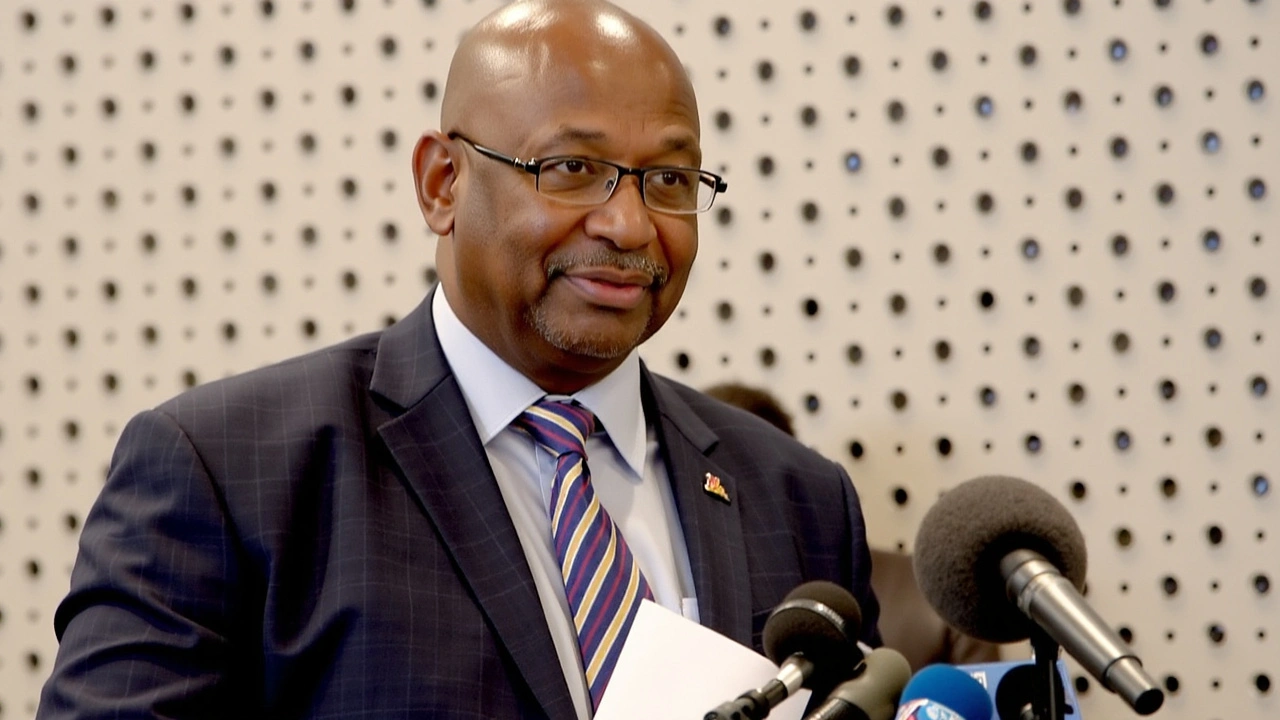ANC Ousts Obed Bapela Over Unauthorized Morocco Visit: A Look into the Controversial Trip
 Oct, 13 2024
Oct, 13 2024
Introduction: The ANC's Decisive Action
The African National Congress (ANC) recently made headlines with its decision to remove a prominent figure from its National Executive Committee (NEC). Obed Bapela, a senior member of the organization, found himself at the center of a political storm following an unauthorized trip to Morocco. It was found that Bapela had represented the journey as an official ANC sanctioned activity. This revelation not only brought to light an infringement of the party’s regulations but also captured the media's attention, illustrating the ANC's firm grip on diplomatic integrity within its ranks. The broader implications of this internal decision reflect the challenges political parties face in maintaining cohesion and transparency.
The Controversial Trip to Morocco
What triggered the ANC's action was Bapela's ill-fated trip to Morocco, a country embroiled in a complex international controversy due to its claims over Western Sahara. The issue has been a longstanding geopolitical dispute, with the ANC historically siding with the Sahrawi people's right to self-determination. Bapela’s claim that his visit was part of an official ANC delegation immediately raised red flags. Not only was this assertion unfounded, but it also contradicted the party's established foreign policy stance. As allegations of misrepresentation surfaced, questions began to arise about the true nature and intent behind Bapela’s visit. Was it a personal endeavor misconstrued, or was there a deeper political strategy at play?
Transparency and Accountability in Leadership
The removal of Obed Bapela serves as a stark reminder of the importance of transparency and accountability, especially within organizations playing central roles in national governance. Such events underscore the need for internal mechanisms to prevent unauthorized diplomacy that could potentially harm the party's image. For the ANC, enforcing strict adherence to protocol is essential to maintain the trust of its constituencies both domestically and globally. The incident also casts a light on the high stakes involved in international relations and how individuals in power positions bear the responsibility of upholding collective decisions and portraying a united front.
Implications of Unauthorized Diplomatic Engagement
While the reasons behind Bapela's unauthorized trip remain a matter for internal ANC deliberation, the broader implications resonate beyond the party’s borders. Diplomatic engagements, such as this one, often hold significant weight in international relations. Unauthorized visits can lead to diplomatic tensions, miscommunications, and damage relationships that have been cultivated over decades. For the ANC, which has placed a special emphasis on international solidarity and support for self-determination movements, this incident is particularly sensitive. It raises questions about how political entities ensure that such breaches of protocol are prevented and how diplomatic consistency is maintained.
The Need for Internal Policy Re-Assessment
This incident could serve as a catalyst for the ANC and similar political organizations to reassess their internal policies and procedures regarding international travel and representation. Establishing strict guidelines and ensuring comprehensive communication can address potential loopholes that might otherwise be exploited or misunderstood. By doing so, political parties can safeguard against future incidents that risk undermining their policy positions or causing internal divisions. It also highlights the importance of continuous education and reiteration of party policies to ensure alignment at all levels of governance.
Conclusion: Upholding Party Integrity
The ANC's removal of Obed Bapela from the NEC not only emphasizes its commitment to party integrity but also sends a strong message regarding the non-negotiable nature of its principles, particularly concerning international diplomacy. It sheds light on the critical importance of transparency, protocol adherence, and accountability in political leadership roles. While this incident may have temporarily shifted the focus onto internal matters, it ultimately serves to strengthen and clarify the party's operational and ideological foundations as it moves forward. For ANC members and political leaders worldwide, the takeaway remains unequivocal: transparency and consistent adherence to established policies are paramount in building trust and credibility.